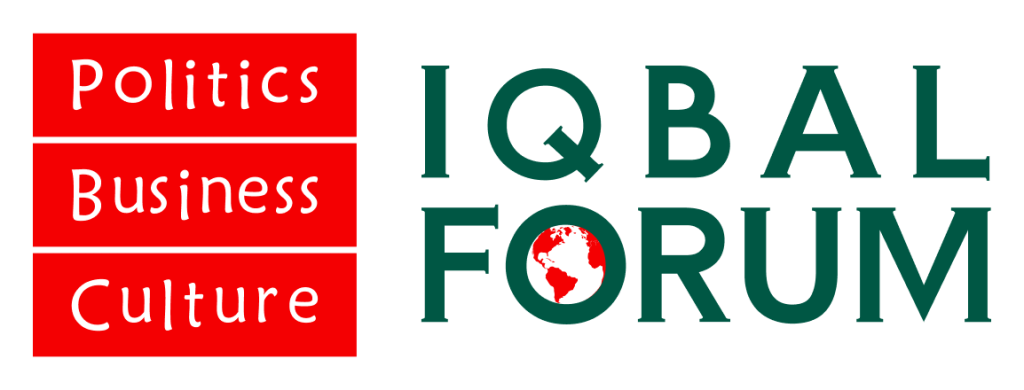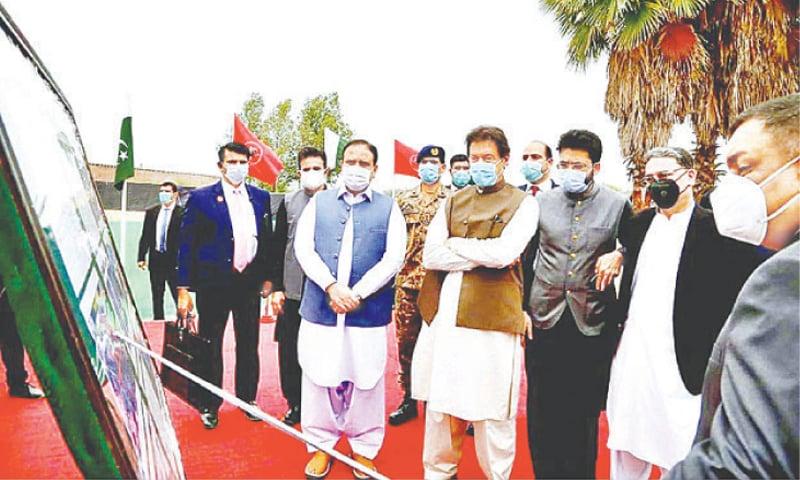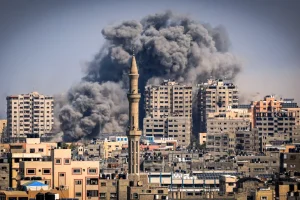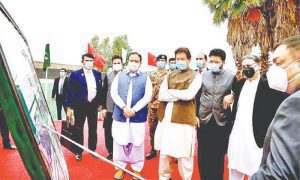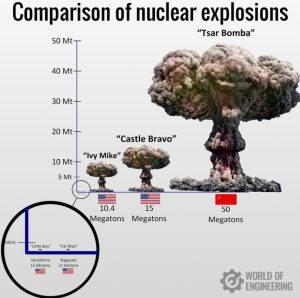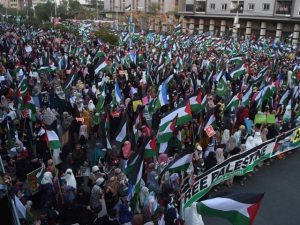The dire warning by the World Bank that Pakistan is on the edge of a precipice with the country facing its worst and longest economic crisis should have come as yet another wake-up call for the nuclear armed country of 240 million people. But it seems we are living in a perpetual state of denial.
In a statement last week, the World Bank’s country chief said that Pakistan should decide whether it wanted to remain a “laggard with 40 percent population living below the poverty line or change course to take off for a brighter future.” He blamed elite capture and policy decisions driven by strong vested interests of the military, political and business leaders for the mess.
He pointed out that Pakistan had been facing numerous economic hardships including inflation, rising electricity prices, severe climate shocks, and insufficient public resources to finance development and climate adaptation — when the country was among the most vulnerable to climate change impact.
What the World Bank official said provides a reality check for the country’s power establishment. Pakistan is facing an existential threat with worsening human resource capital and an economic crisis. According to the World Bank, over 39 percent of the population is now living under the poverty line. Pakistan’s per capita income is the lowest in South Asia. The country has the dubious distinction of having the highest out-of-school children in the world. The worsening economic situation has severely impacted the majority of its citizens, especially low and middle-income segments and small businesses.
It is basically corporate interests that determine our financial policy priorities.
Mounting debt and dwindling foreign exchange reserves are two of our biggest challenges, which, without immediate fiscal reform, could lead to total economic collapse. There are many countries who have gone through similar crises but they managed to recover and moved to a path of sustainable growth by making right and timely decisions. The problem in Pakistan is much more serious with the continuing elite capture of state power that provides total control of the vested interests shaping our policy priorities.
Unfortunately, there has been no fundamental change in Pakistan’s political power structure during that period. A small power elite has dominated Pakistan’s political scene under both civilian and military rule. For too long, the country has traded on the back of its strategic resources and geopolitical importance, making its rulers totally dependent on international financial aid. It is not only about reliance on external aid but also about an economy based on internal rents limiting our productive capacity.
In fact, the weakening of state institutions has prevented the country from embarking on the path of economic progress and ending financial dependence on multilateral agencies and external donors. The failure to broaden the tax base is one of the manifestations of the continued stranglehold of a small narrow elite which has left the state with few resources for the development of economic infrastructure. It also makes the country more dependent on foreign aid.
A major problem is our failure to increase our revenue. Tax revenue as a percentage of GDP has stagnated at 10 percent over the last decade and has been declining. While burdening the masses with more taxes, as part of the IMF’s program, the state has refrained from broadening the tax net to real estate, retail business and big landlords. It is basically corporate interests that determine our financial policy priorities.
Our electoral politics largely revolve around gaining control of state patronage. Therefore, it seems hard for our ruling elite to break away from their narrow interests and move toward a sustainable and self-reliant course. Political instability has further underlined the severe challenges that the already ailing economy faces.
Pakistan appears to be fast sliding into the category of a failing state, with no serious attempts being made to arrest the drift and revive the country on the pathway to a modern democratic and economically developed state. With state power continuing to be dominated by the security establishment and a small power elite, there is little hope for the country achieving political and economic stability.
In fact, our electoral politics largely revolve around gaining control of state patronage. Therefore, it seems hard for our ruling elite to break away from their narrow interests.
The danger is that Pakistan may plunge deeper into instability after the elections. Even with just a few months left, economic and financial reforms are not on any party’s agenda.
As the World Bank pointed out, Pakistan is in its tipping point crisis where it should decide whether to remain stuck in the groove or go for long due reforms. There is now a need for a complete re-hauling of the existing system in order to move forward.
